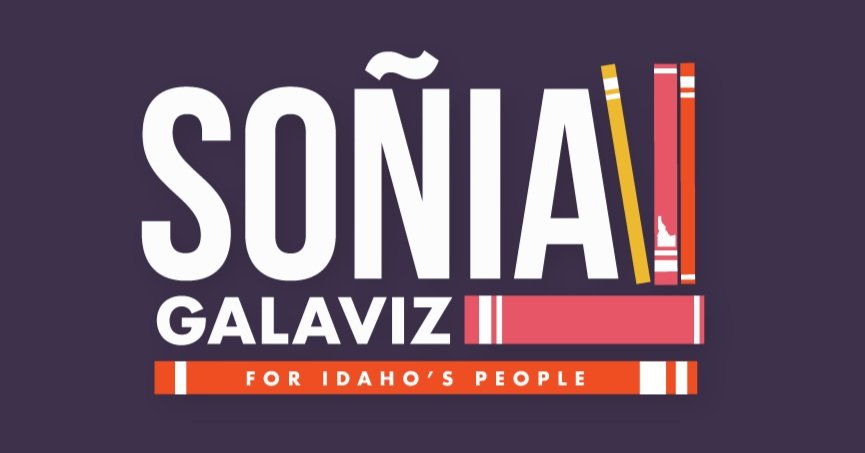When the World Turns Upside Down, Teachers Step Up
An army of educators at Boise’s Garfield Elementary support refugee families during COVID-19
By Barbara Ray
Sonia Galaviz needed to wrap up this interview so she could deliver a Wi-Fi hotspot to one of her students. She hadn’t seen her student, a fifth-grader and recent refugee from the Republic of the Congo, in their online classes recently and realized the Wi-Fi had probably gone out again. Boise is one of a handful of official refugee resettlement communities across the country.
Galaviz had a portable hotspot she could share with the family. It was her third visit to fix the Wi-Fi.
“I’m not moving heaven and earth here,” she said, “but I can at least bring them access to the internet.”
Not moving heaven and earth perhaps, but she and her fellow teachers at Garfield Elementary are going above and beyond to make sure their students and families, the majority of whom are recent refugees, know they have an ally during all this. It is bewildering enough for those navigating a new county with few resources and the thinnest of networks. And then COVID hit.
“COVID struck this community hard,” said Galaviz. “There are no extra resources in these families, and COVID just underscored the existing disparities.”
Garfield Elementary is in a working-class neighborhood in southeast Boise. Nearly 70 percent of the students qualify for free and reduced lunch. On any given day in Galaviz’s class she hears at least five languages, with children from Micronesia, Iraq, Mexico, the Republic of the Congo, and Botswana.
Many of the parents work in jobs considered essential, and that exposure left nearly half of the families sick with COVID-19, she said. Many other parents were laid off from jobs in restaurants and other services when they shut down for much of the spring.
“Things get real simple, real quick,” she said of the pandemic’s impact. Families suddenly worried about the roof over their head, food on the table, their job, and who would care for their children.
It was then that Garfield’s “army of teachers” started hustling. They called their networks of local nonprofit organizations. They went to their churches. They tapped into the teacher’s union fund. They called local philanthropies. They started collecting diapers, feminine hygiene products, and toilet paper for the families. They delivered food. They filled gas tanks. They found parents new jobs.
"My living room looked like Wal-Mart,” Galaviz said of all the supplies she was distributing. The teachers spent hours on the phone strategizing about who needed what and how to get it to them, often to families in quarantine.
The teachers also helped families navigate the byzantine benefits and assistance system. Not only are the many forms only in English, Galaviz said, but they’re designed not to be easy. As families were laid off, the teachers helped them apply for unemployment insurance and to secure money from the CARES act, which was being deposited in Americans’ bank accounts across the country. Except—many of the refugee families at Garfield are suspicious of banks and prefer to operate in cash. Another form, another ream of evidence to assemble.
“We were constantly connecting the dots,” Galaviz said. “I don’t know anything about the ins and outs of Section 8 housing, but I know someone who does. So I’d call that person and connect them to the families about to lose their home.”
All of this in addition to teaching in totally new ways, online and off.
But, said Galaviz, she knows that if she can reduce the stress at home by helping parents survive, the benefits will trickle down to the child.
“When mom and dad aren’t worried about making rent, they can dedicate more of those molecules to the child,” she said. “In a high-stress year we can all shoulder a bit of that weight."
Galaviz is working harder than she ever has, but she’s okay with that. “I know what I signed up for,” she said. “Teachers are notorious for doing things outside the margins. I’m one of many doing what needs to be done to meet the needs of our families.”
And, she pointed out, she still gets a steady paycheck, she has sick days, she’s not worried about the roof over her head. “I have that privilege.”
What sustains her is the knowledge that Garfield is living the notion of equity.
“When you grow up in Garfield, you don’t know it isn’t normal to hear a fellow student speaking a foreign language or to see a blind child walking with a cane.” (Garfield Elementary serves not only refugee students but those with learning and physical disabilities.) The teachers at Garfield are bending and shaping the world around them to make it more inclusive, she said.
“So in my hardest time of teaching, I’m constantly reminded how important public education is. Every inch of ground we gain just feeds the soul."
The final thing that sustains her? A sense of community. “Community is how we get through this,” she said.
